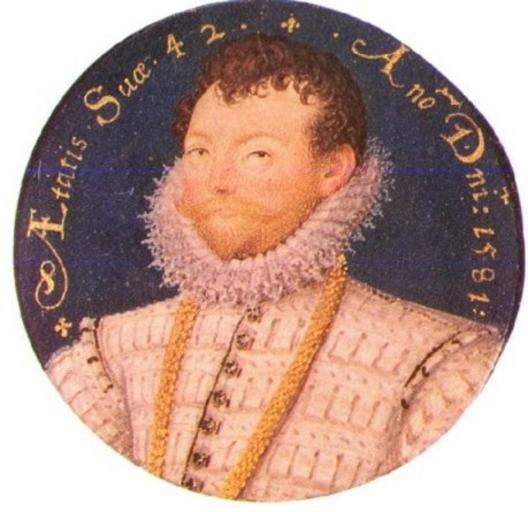MAKE A MEME
View Large Image

| View Original: | Sir_Francis_Drake.jpg (459x445) | |||
| Download: | Original | Medium | Small | Thumb |
| Courtesy of: | www.flickr.com | More Like This | ||
| Keywords: indoor Sir Francis Drake, Vice Admiral (1540 – 27 January 1596), was an English sea captain, privateer, navigator, slaver and politician of the Elizabethan era. Queen Elizabeth I awarded Drake a knighthood in 1581. He was second-in-command of the English fleet against the Spanish Armada in 1588, subordinate only to Charles Howard and the Queen herself. He died of dysentery in January 1596[1] after unsuccessfully attacking San Juan, Puerto Rico. His exploits were legendary, making him a hero to the English but a pirate to the Spaniards to whom he was known as El Draque, "Draque" being the Spanish pronunciation of "Drake". His name in Latin was Franciscvs Draco ("Francis the Dragon"). [2]. King Philip II was claimed to have offered a reward of 20,000 ducats[3] (about £4m or $6m by modern standards) for his life. He is famous for (among other things) sailing around the world, returning to England in 1580. Sir Francis Drake, Vice Admiral (1540 – 27 January 1596), was an English sea captain, privateer, navigator, slaver and politician of the Elizabethan era. Queen Elizabeth I awarded Drake a knighthood in 1581. He was second-in-command of the English fleet against the Spanish Armada in 1588, subordinate only to Charles Howard and the Queen herself. He died of dysentery in January 1596[1] after unsuccessfully attacking San Juan, Puerto Rico. His exploits were legendary, making him a hero to the English but a pirate to the Spaniards to whom he was known as El Draque, "Draque" being the Spanish pronunciation of "Drake". His name in Latin was Franciscvs Draco ("Francis the Dragon"). [2]. King Philip II was claimed to have offered a reward of 20,000 ducats[3] (about £4m or $6m by modern standards) for his life. He is famous for (among other things) sailing around the world, returning to England in 1580. | ||||